from 0 review
Daily Tour
15 people
___
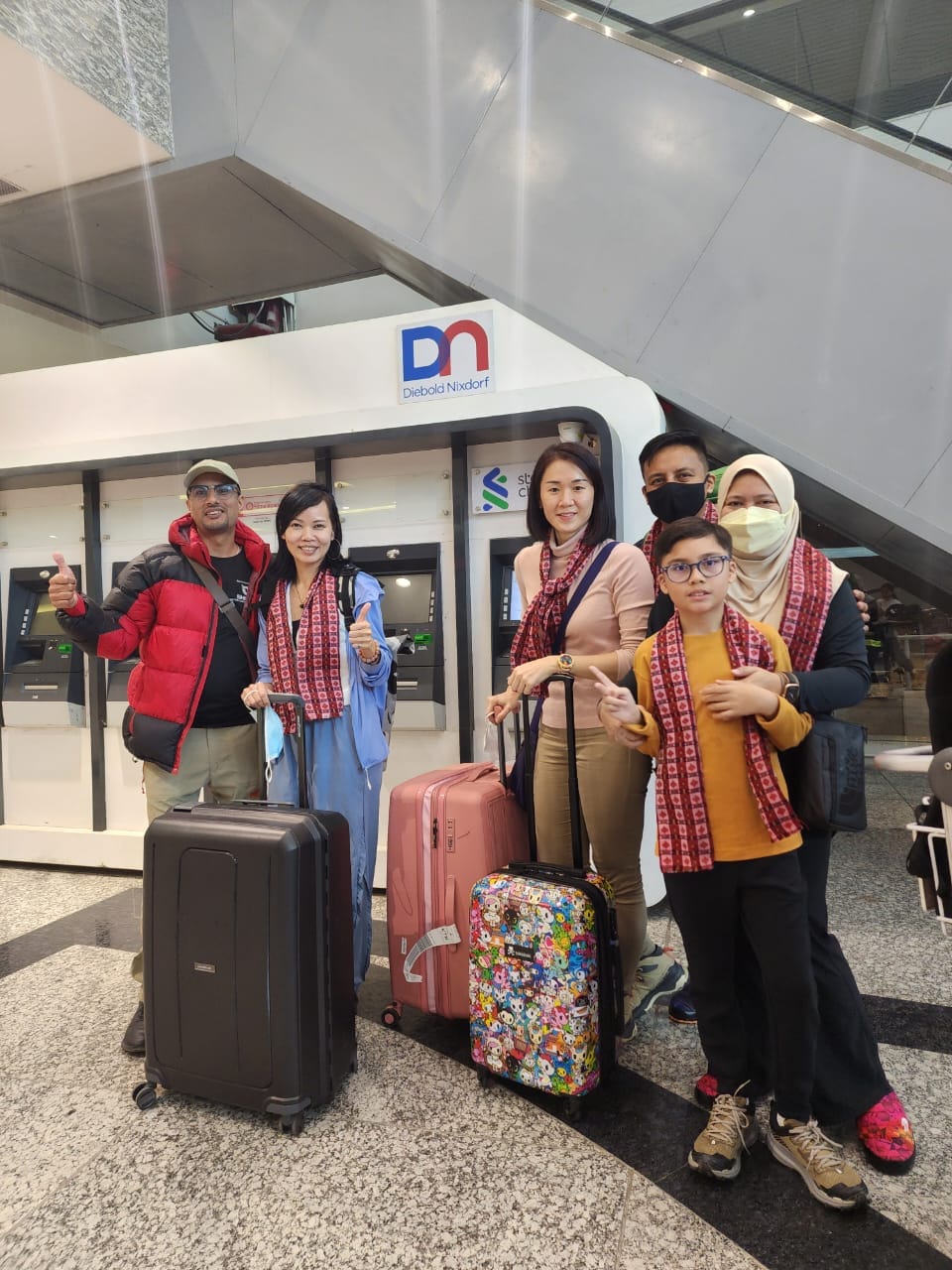
Upon arrival, our team, identifiable by our company's banner, will greet you at the terminal gate. They'll assist together with your luggage and ensure your comfortable transfer to the hotel in a private car. Betting on your point in Kathmandu, you'll need the chance to rest. Later in the evening, join us for a welcome dinner alongside the character Heaven Treks and Expedition team, enjoying delicious cuisine amidst the colorful atmosphere of Thamel.
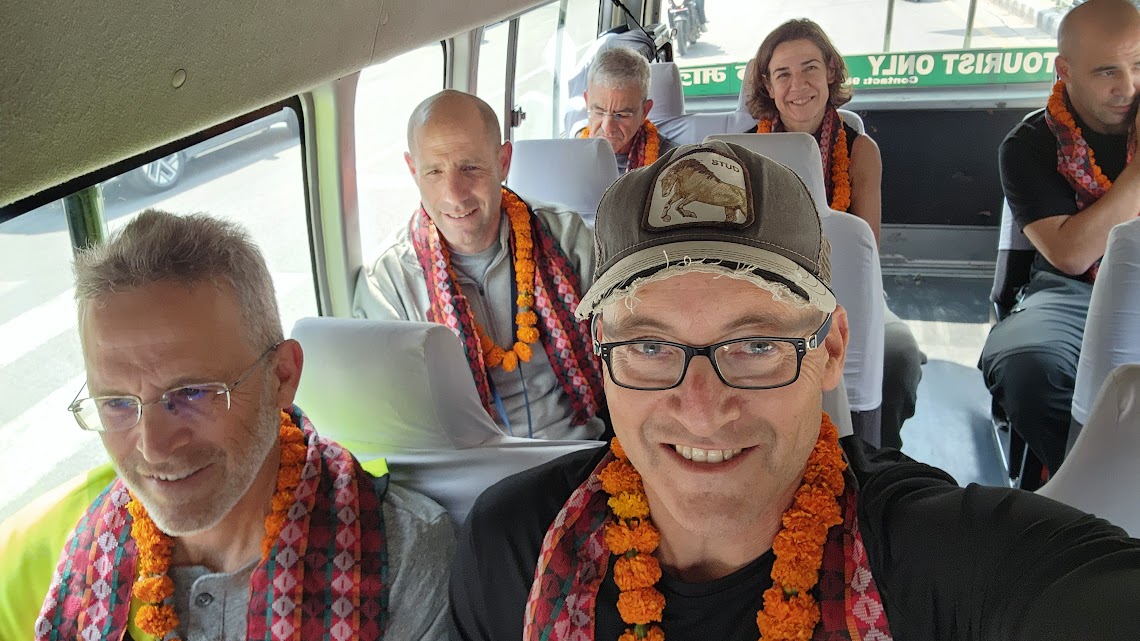
Before embarking on the trek, you have got each day to explore Kathmandu's historical marvels and brace yourself for the journey ahead. In the morning, our guide will escort you from your hotel to go to renowned sites including the Monkey Temple, Boudhnath Stupa, Pashupatinath Temple, and Patan Durbar Square. These landmarks offer a deep dive into Nepali art, architecture, and culture. Post-lunch, our office hosts a quick meeting where the guide provides an introduction to the trek, shares useful tips, and assists with packing. We offer duffel bags for the trek, and also the guide can aid in acquiring any necessary gear.
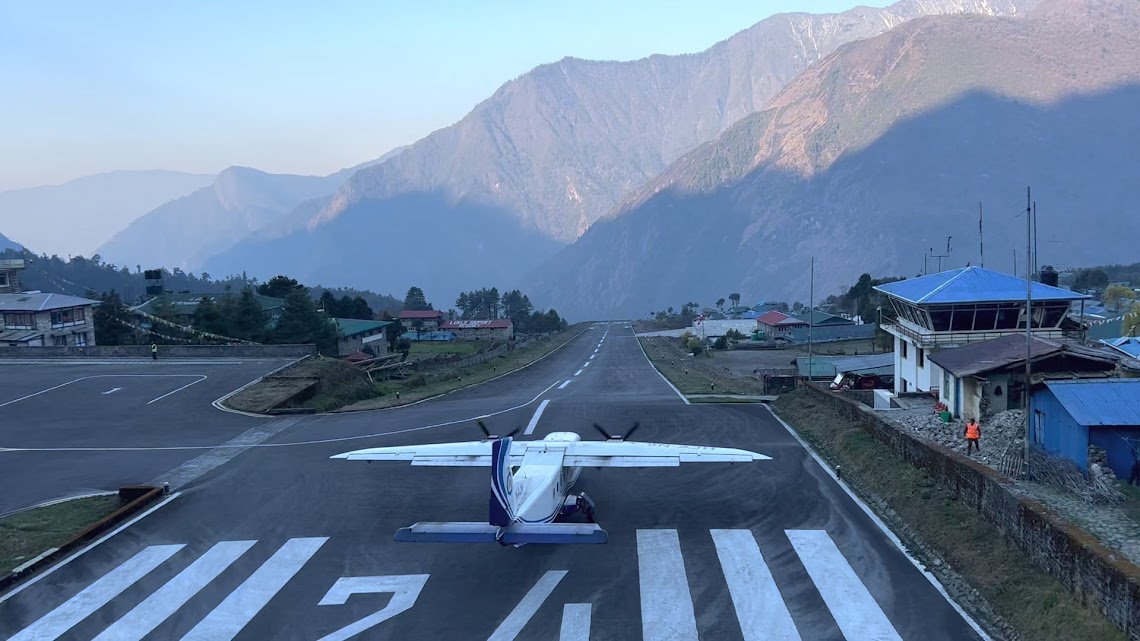
The journey to Everest Base Camp commences with an exhilarating morning flight to Lukla, setting the tone for the journey ahead. Upon landing, porters join the group, and also the trek towards Phakding village begins. Phakding, our first night's stop, lies slightly below Lukla, offering a serene start to the trek. The route to Phakding follows the Dudh Koshi River, meandering through lush forests and therefore the quaint Cheplung village at 2,660 meters. the trail continues past Thado Koshi Gaon, located at 2,580 meters, involving crossings over several suspension bridges. This leg of the journey offers splendid views of the Kongde Ri and Kusum Kanguru peaks, marking a picturesque commencement to the trek.
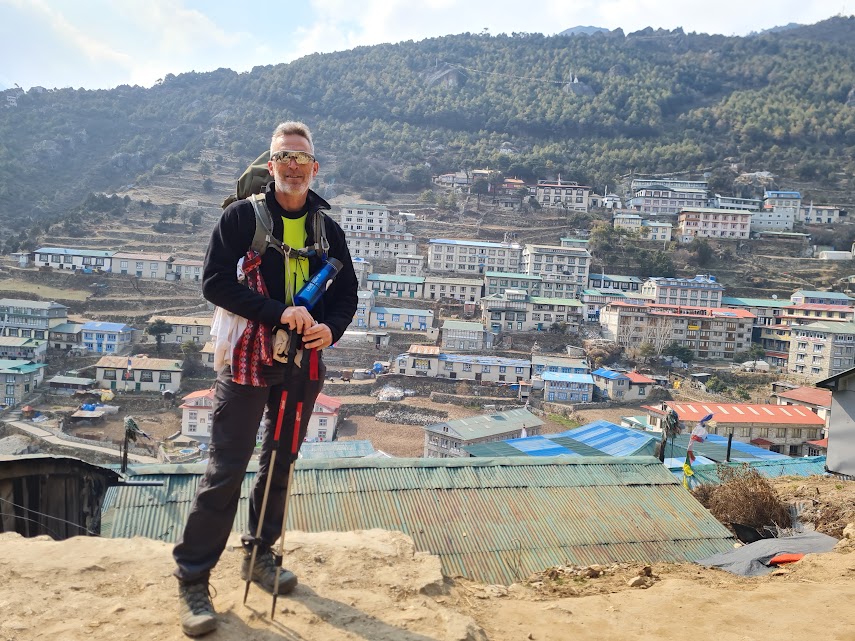
Post breakfast, the trek continues through vibrant rhododendron forests towards the village of Toktok, situated at 2,760 meters. The journey progresses, passing by the Bengkar village at 2,630 meters, before crossing two hanging bridges resulting in Monjo at 2,835 meters. In Monjo, trekking permits are registered as we enter the Sagarmatha parkland, a UNESCO World Heritage Site known for its unique biodiversity and therefore the home of Everest. The path from Monjo involves traversing several suspension bridges and undertaking a steep ascent to Namche Bazaar. This bustling town is the most trading hub of the Khumbu region, Offering trekkers a mixture of recent amenities and traditional Sherpa culture.
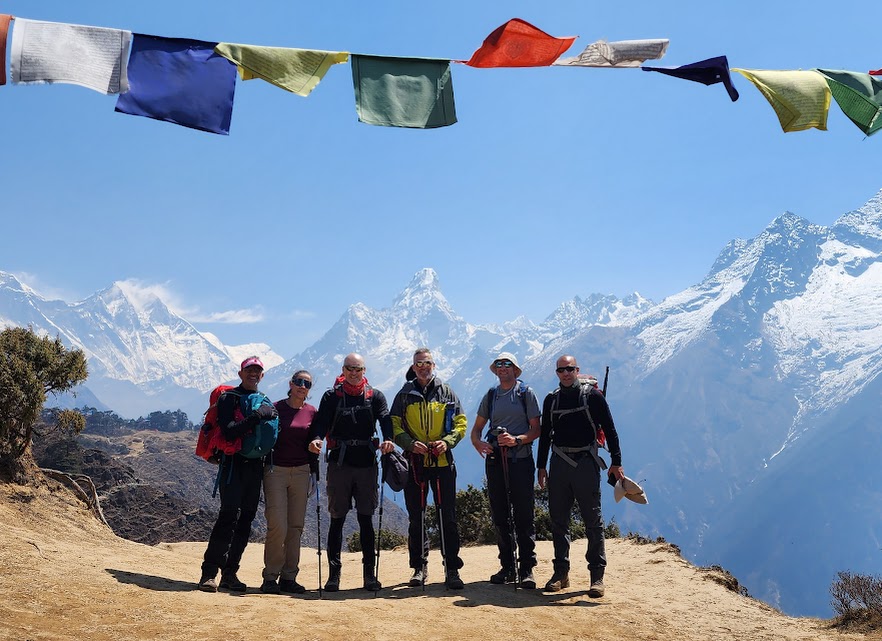
Today is a day of the week in Namche Bazaar, crucial for acclimatization. The morning begins with a hike to Hotel Everest View, offering the trek's first breathtaking views of Mt. Everest, together with Lhotse, Nuptse, Thamserku, Kongde Ri, and Khumbila. Reckoning on energy levels, the journey may reach the Khumjung monastery or conclude with a return to Namche Bazaar for relaxation. Namche Bazaar, the biggest Sherpa settlement within the Khumbu region, doubles as a vibrant tourist hub. It boasts cafes, pubs, souvenir shops, restaurants, and museums, presenting an energetic atmosphere beyond expectations. A visit on Saturday reveals the bustling Saturday Market, a cultural highlight to not be missed.
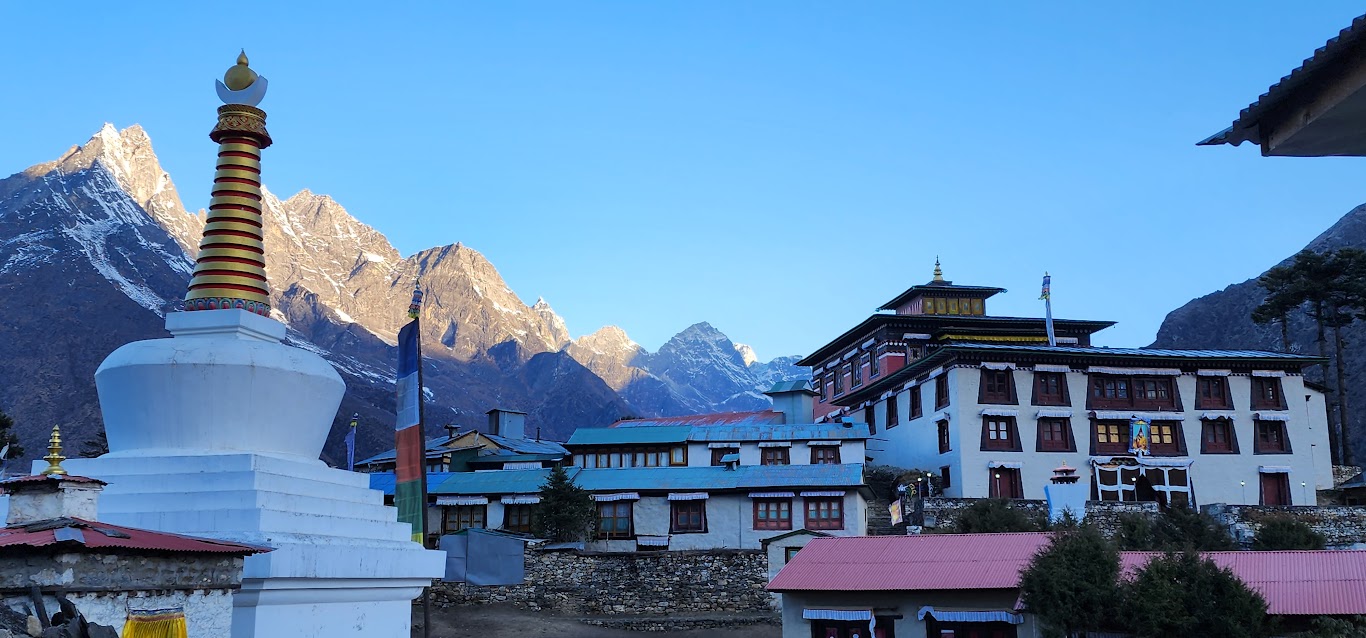
Leaving Namche Bazaar, the trek advances towards the serene Tengboche village, navigating the rugged terrains of the Himalayas. the trail first results in Kyangjuma at 3,550 meters, where trekkers are treated to picturesque landscapes. Following a zigzag ascent and subsequent descent, the journey reaches Phungi Thenga at 3,250 meters. Crossing a bridge, the trek continues through dense, verdant forests, culminating in Tengboche village. This segment of the trek is renowned for its spectacular mountain vistas. Tengboche offers an awe-inspiring panorama, including the majestic Ama Dablam, Lhotse, Everest, and Nuptse, presenting a memorable highlight of the trekking experience.
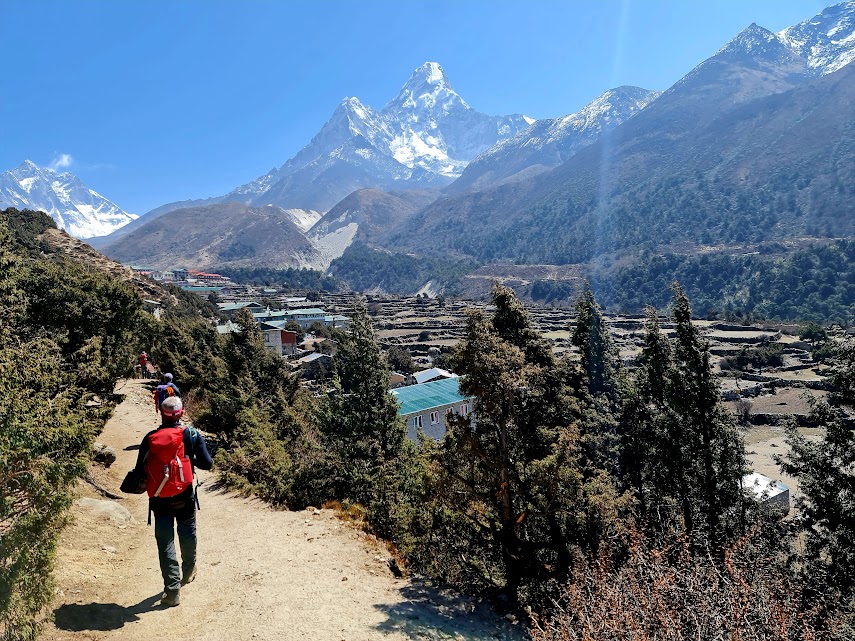
Departing from Tengboche village, the trek descends through captivating rhododendron forests towards Deboche, located at 3,320 meters. This a part of the trail offers the prospect to identify wildlife like blue sheep, musk deer, and therefore the colorful monal pheasant. Continuing the journey, a bridge over the Imja Khola River ends up in the normal Sherpa village of Pangboche at 3,930 meters, offering unique insights into local life. Another hanging bridge crossing brings us past Shomare at 4,010 meters, moving towards Dingboche. Before reaching Dingboche, the trail winds through Orsho at 4,190 meters, each step of the journey framed by the awe-inspiring fantastic thing about the Himalayas.
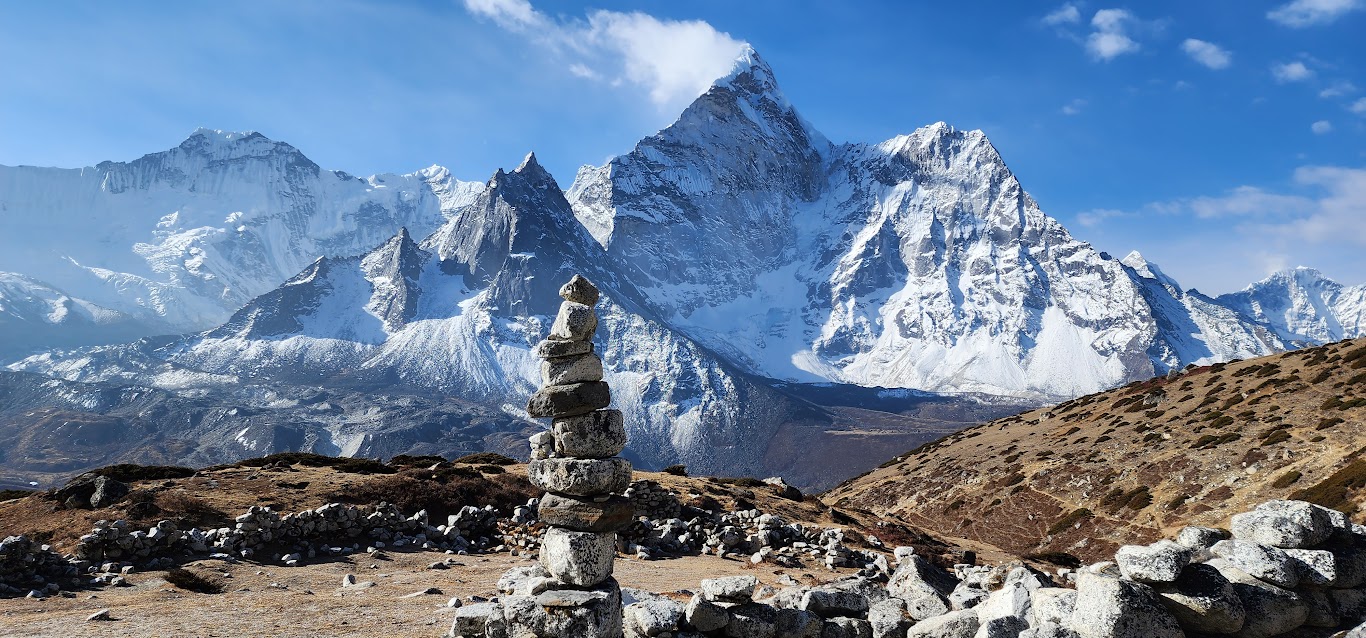
In Dingboche village, we embrace a day of rest, crucial for acclimatization to the high altitude. The day commences with a morning hike to the bottom of Nangkar Tshang, where trekkers are rewarded with stunning views. The panorama includes the towering Lobuche, Lhotse, Nuptse, Kangtega, Ama Dablam, and Cholatse, offering a spectacular backdrop that encapsulates the essence of the Himalayas. Following the hike, the rest of the day is spent in Dingboche village. now allows trekkers to rest and recover, while also offering the chance to interact with the local people, understanding their culture and lifestyle amidst the breathtaking natural landscape.
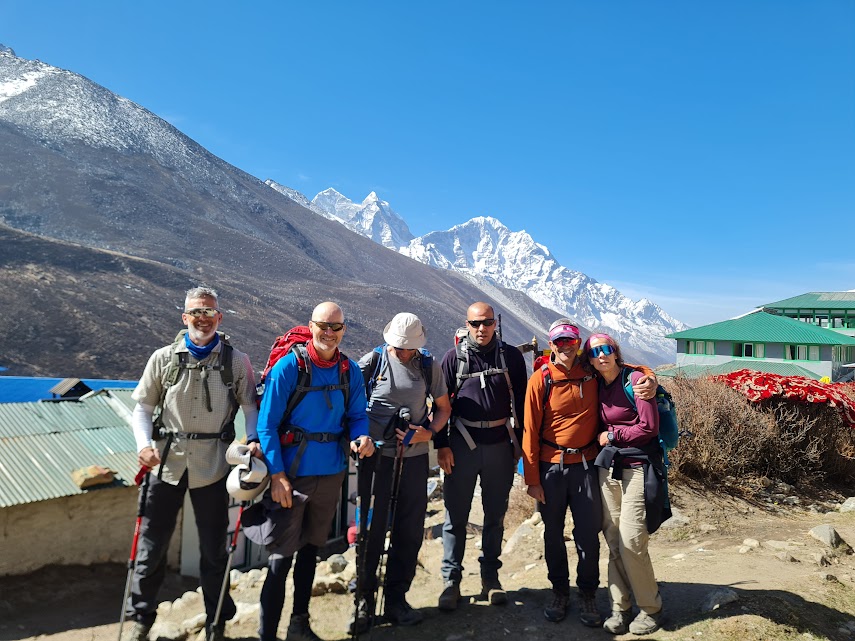
After departing from Dingboche, the trek takes on a challenging ascent, initially navigating a steep slope to Dusa at an elevation of 4,503 meters. the trail continues its upward trajectory towards Dughla, reaching 4,620 meters, where trekkers encounter a bridge just before the village. Beyond Dughla, the trail passes by poignant memorials to climbers and Sherpas lost on Everest, marking a somber moment of reflection. The journey intensifies with a steep climb across the Dughla Pass at 4,830 meters, transitioning onto the glacier. As trekkers progress towards Lobuche village, the landscape undergoes a dramatic transformation, presenting a stark, rocky terrain void of vegetation, a vivid reminder of the Himalayas' rugged beauty.

Setting out from Lobuche village within the early hours, the trek proceeds along a well-trodden path, ascending beside the Khumbu glacier towards a notable waypoint, Pyramid at 4,970 meters. This site houses an Italian research facility, standing as a testament to the scientific interest within the region. The journey then ends up in Gorak Shep, where a short pause is taken before embarking on the ultimate leg to Everest Base Camp (EBC). The trail to EBC is marked by alpine ponds, glacier moraines, and streams, with a challenging terrain that's both steep and rocky. Along the way, trekkers are treated to views of the Khumbu Glacier, a striking feature of the Himalayan landscape. Upon arrival at Everest Base Camp, the impressive Khumbu Icefall and surrounding peaks envelop the senses, offering an instant of awe and accomplishment. After soaking within the vistas and also the atmosphere of EBC, the day concludes with a trek back to Gorak Shep, marking the culmination of a big leg of the journey.

On this present day, an exhilarating ascent to Kala Patthar marks the prelude to the trek's conclusion. Embarking before dawn, trekkers aim to achieve this renowned viewpoint in time to witness the sunrise illuminating Mt. Everest and its surrounding peaks in a very breathtaking display. Kala Patthar provides an unparalleled view of Everest and also the vast Himalayan range, a flash of profound awe and reflection. Following this early morning venture, the journey leads back to Gorak Shep and so retraces the trail towards Dughla. The descent continues from Dughla, culminating in Pheriche village. This segment transitions from the challenge of ascent to a predominantly downhill trek, punctuated by minor ascents, guiding trekkers through the changing landscapes back to the comforts of Pheriche.
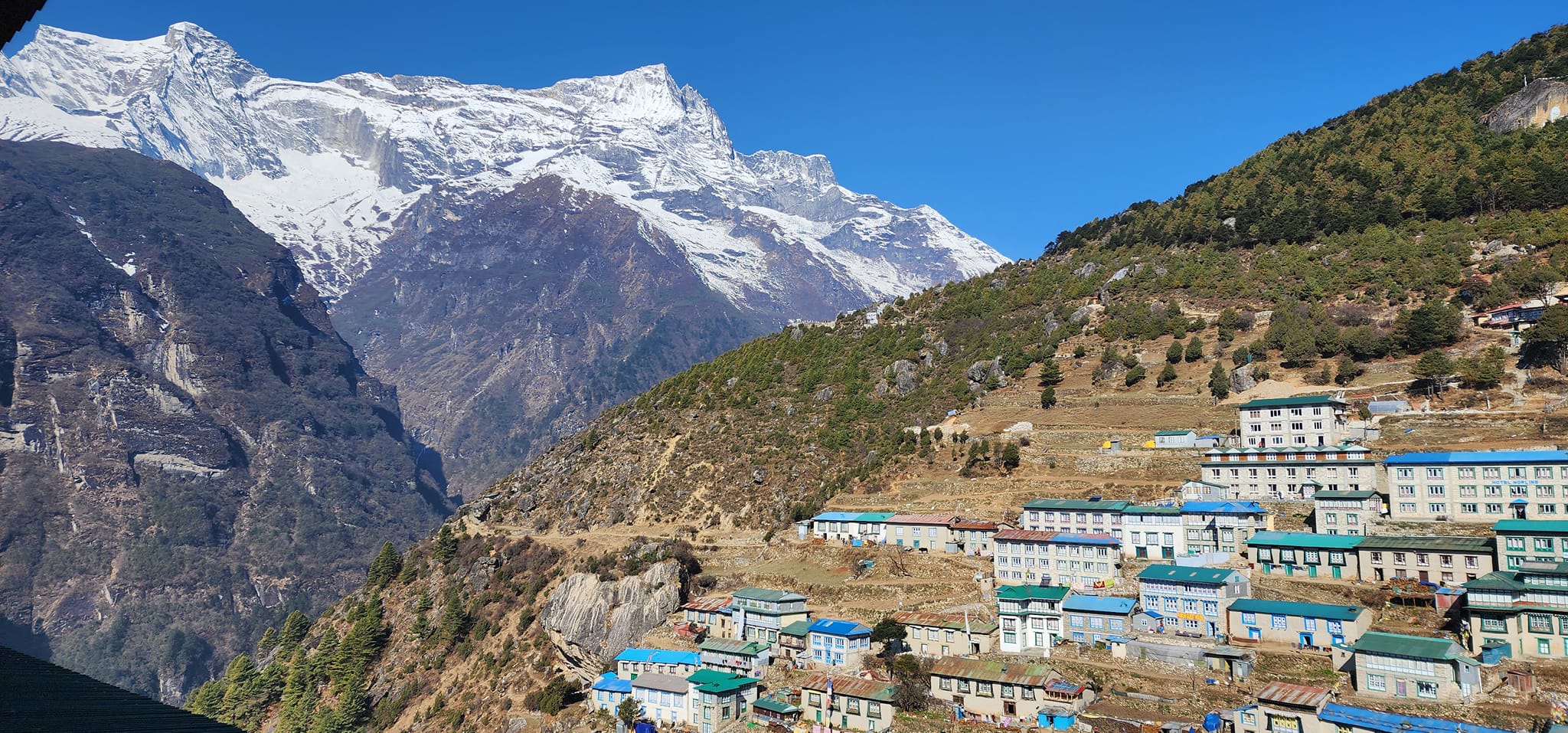
Today, the trek takes a descending route back to Namche Bazaar, retracing steps through the familiar landscapes of the Khumbu region. The journey starts with a return to Pangboche village, navigating through terraced fields and alpine forests. the trail continues, weaving through lush rhododendron woods to Tengboche village, followed by a descent to Phungi Thenga. the ultimate stretch involves a winding trail that leads back to the colourful and welcoming Namche Bazaar.
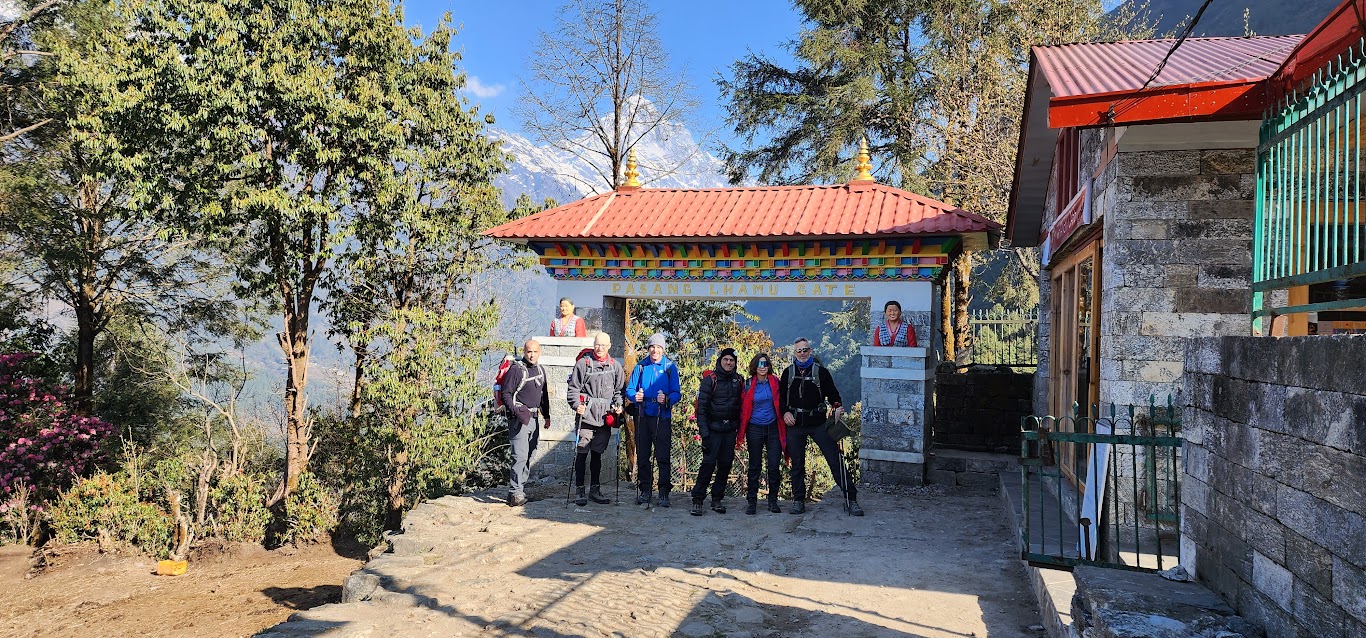
The journey from Namche Bazaar initiates with a steep descent along rugged foothills, transitioning into forested paths. This segment leads trekkers through remote settlements, immersing them in serene landscapes adorned with magnolia and rhododendron forests. The route involves crossing several suspension bridges over the Dudh Koshi River, gradually bringing the trek to Phakding village. Departing Phakding, the trail retraces its steps back to Lukla, ascending beside the Dudh Koshi River through verdant forests. This final leg of the trek is marked by passing small villages and crossing multiple bridges, encapsulating the essence of the Himalayan trail because the journey concludes in Lukla.
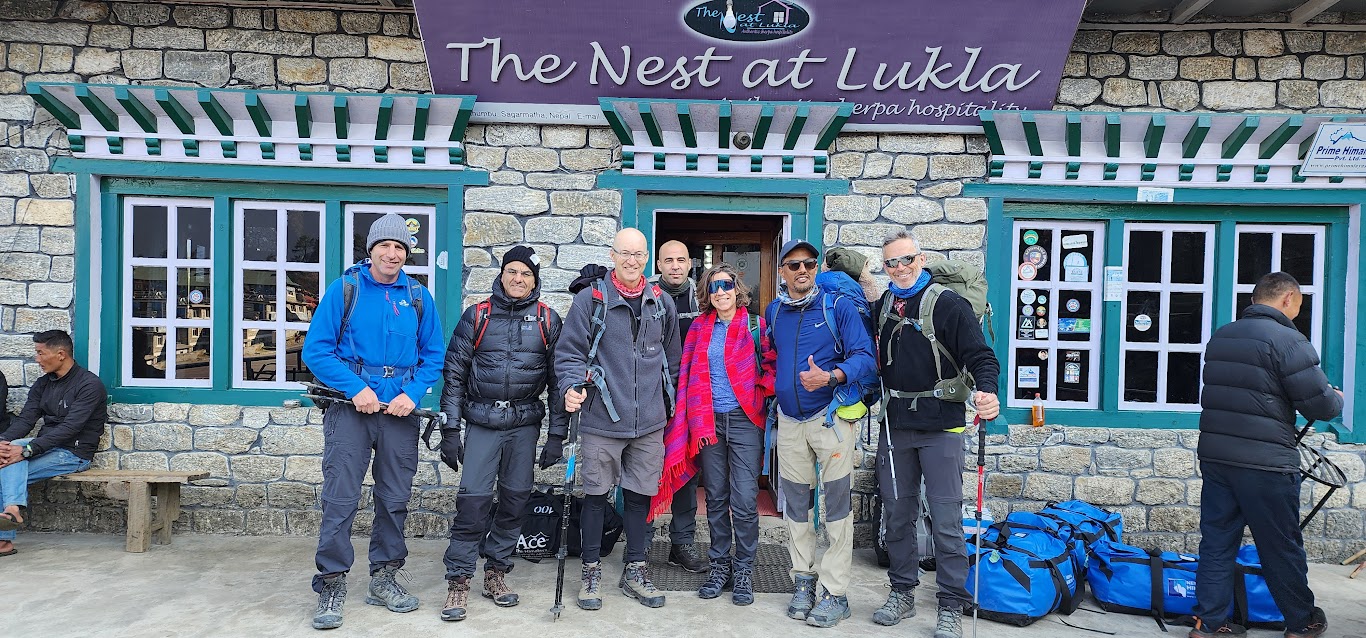
The return to Kathmandu marks the conclusion of the Everest Base Camp trek, with an early morning flight whisking trekkers back to the capital. This flight provides one last aerial view of the magnificent mountains. the remainder of the day is at leisure in Kathmandu, with relaxation, indulgence in local cuisine, and shopping. The journey officially concludes with a farewell dinner within the evening, where trekkers receive a certificate commemorating their successful expedition.
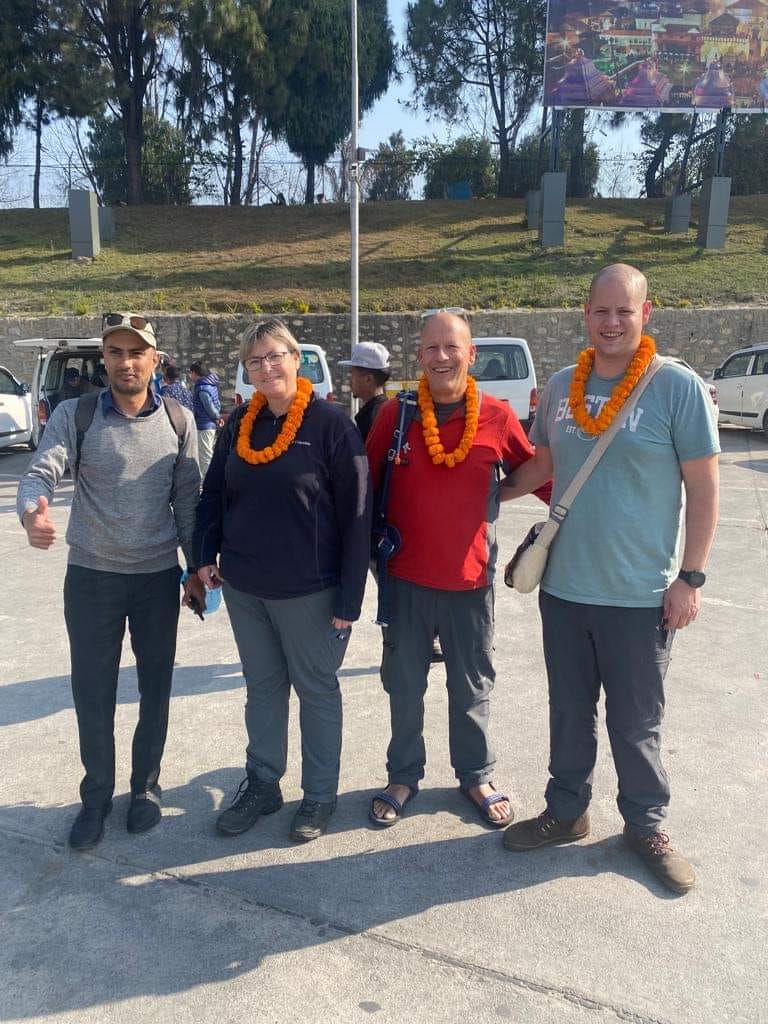
The Everest Base Camp Trek with Nature Heaven Treks and Expedition concludes today as we ensure your transfer to the international airport from your hotel, coordinating along with your flight point in time. Our commitment to your adventure doesn't end here; if you've got additional days to explore, we're able to suggest both adventurous and relaxing trips within Nepal, enriching your experience further. Please note, that we advise allocating one or two extra days beyond the trek schedule. Flights to and from Lukla are notably weather-dependent, making flexibility in your travel plans a wise precaution to avoid any unforeseen delays.
Allow our experts at Nature Heaven Treks and Expedition to help you Plan one of the most Memorable Vacations based on your interests with their in-depth knowledge of the Himalayas, they can craft the journey of your dreams considering your preferred location, time frame, and Budget
During the peak seasons for the Everest Base Camp Trek (March to May and September to November), all the Lukla flights will be operated from the Manthali Airport due to congestion at Tribhuvan Airport.
The Everest Base Camp Trek is considered challenging due to its high altitude, steep climbs, and harsh climatic conditions.
The trek to Everest Base Camp typically takes about 12 to 14 days, depending on the specific route and pace.
The cost of trekking to Everest Base Camp varies widely, typically ranging from $1,200 to $3,000, depending on the tour package and services included.
A beginner can complete the Everest Base Camp trek with proper preparation, training, and acclimatization, despite its challenging nature.
Yes, traditional people can trek to Everest Base Camp if they are physically fit and well-prepared for high-altitude conditions.
To reduce the impact of trekking on Everest Base Camp, choose eco-friendly practices and support local conservation efforts.
The best times to visit Everest Base Camp are during the pre-monsoon season (March to May) and post-monsoon season (late September to November).
Drinking alcohol on Everest is strongly discouraged due to its effects on dehydration and altitude sickness, which can be dangerous.
Staying overnight at Everest Base Camp is generally not permitted for trekkers; most spend the night in nearby Gorak Shep instead.
You do not need a tent for the Everest Base Camp trek as there are established teahouses along the route for accommodation.
Yes, there is WiFi available at Everest Base Camp, but it is typically provided through satellite connections and may incur charges.
Temperatures on the Everest Base Camp Trek can range from -10°C to -20°C at night, particularly during the colder months.
Yes, the Everest Base Camp Trek can be crowded, especially during peak seasons in spring (March to May) and autumn (September to November).
The oxygen level at Everest Base Camp is about 50% of what it is at sea level, significantly affecting breathing and exertion.
There are no permanent shops at Everest Base Camp itself; however, basic goods are available at teahouses and shops in Gorak Shep.
Leave a review